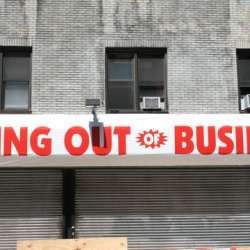What is Wrongful Trading?
Written By: David Tattersall, Filed under: Articles on: 24/11/2020

Wrongful trading is a section under the Insolvency Act 1986 that covers directors who make transactions in and out of the business while knowingly aware that the company is insolvent. If directors are found guilty of wrongful trading under the Insolvency Act, they can be made personally liable for creditor debts.
Temporary suspension of wrongful trading
As part of the Corporate Insolvency and Governance Act, the threat of personal liability arising from wrongful trading has been temporarily suspended. This means that directors who continue to trade their company through the Covid-19 crisis with the uncertainty that the company may not be able to avoid insolvency in the future, will not be penalised for doing so. This measure will apply to all the main incorporated forms as well as other bodies and associations, whether or not incorporated; however, financial services will be excluded.
In real terms this means liquidators and administrators will not be able to make a claim against an insolvent company’s directors for any losses to the company or its creditors resulting from continued trading while knowingly insolvent for the duration of the suspension of wrongful trading rules. All other checks and balances on directors will remain in place.
The aim behind this temporary amendment is to remove the immediate pressure on directors to close otherwise viable businesses in order to avoid potential liability. This gives directors and shareholders valuable time and space with which to fully assess their position and determine whether a rescue and recovery strategy can be put in place.
How will it work in practice?
The Insolvency Service has provided the following case study to demonstrate how the temporary measure will work in practice:
A company runs a pub. It has steady trade during the winter months, but relies on heavy tourist trade in summer to cover the slower winter period. Up until March it has been trading successfully and making a profit.
The pub has to close in March due to the pandemic. It puts most of its staff on furlough, but has to retain a cleaner, a gardener, and a person to do odd maintenance jobs, all self-employed, and all of which are still needed for the closed business.
The quarterly rent for March has just depleted the reserves, and the next rent payment will be due in late June. A lot of money was lost in wasted perishable stock. Without the summer trade there is a good chance that the company will not have the ready resources to pay June’s rent.
The directors get together and discuss the future of the business. They decide that there is good reason to believe that if the pub can open by the middle of summer, there will be sufficient business in the rest of the summer for the company to get by. Unfortunately, they have absolutely no way of knowing whether the pub will open in the summer or later. They just do not know.
What they do know is that the company will be insolvent in June when it can’t meet its rent bill and will be forced to go into administration. They have to ask themselves whether it is right that they should continue to use utilities and to continue to use cleaning, gardening, and maintenance services with the uncertainty around whether they will be able to pay them. They would need to order more perishable stock, on credit, for a mid-summer reopening. They also need to consider their own position as directors receiving remuneration, as they have mortgages to pay. These are very hard decisions and they will need to use forecasting and consider the likelihood that trade may take some time to return to normal levels, even for summer. They have to decide whether to continue trading in the hope of reopening, or whether to stop now.
If they do continue to trade, and the pub does not reopen in the summer, it could be said that they knew in March that the company would become insolvent and administration proceedings would be inevitable, because there was insufficient certainty to justify the pub continuing to trade. This then leaves them open to a wrongful trading action by the administrator, potentially leading to a court declaration that they are personally liable to contribute to the company’s assets for the period after the pub closed in March.
This will have a serious impact on their decision-making. Not only are they likely to lose their source of income from the pub, but they could also be held liable to contribute to the pub’s creditors. Without any certainty about reopening, they are likely to decide to cease trading straight away. The Government offers a Business Interruption Loan (BIL), but if they take that then it could increase their liability through a wrongful trading action because they had no certainty that the company would be able to repay it.
Removing the threat of personal liability through a wrongful trading action does not take these difficult decisions away. But it does mean that they can make them without fear of the impact on themselves and their families. In particular they could accept the BIL without fear of becoming personally liable for it. If the pub does not reopen by July then it may still be forced to go into administration, but they will not face a wrongful trading action.
Understanding Personal Liability and Loans
Company directors don’t need to provide a personal guarantee for Bounce Back Loans or for BILs under £250,000, and the loans should be used to help firms to survive. However, some company directors have considered using the scheme to repay themselves or personal debts.
There is a false assumption that if the company is unable to recover from the impact of Covid-19 and subsequently enters into a formal insolvency process, then responsibility for repaying the loan will remain solely with the company and liability would not be transferred to directors.
However, this will not be the case if directors have acted improperly and breached their fiduciary duties or abused the loan scheme. While wrongful trading provisions have been temporarily suspended in response to the Covid-19 outbreak, other provisions of the Insolvency Act and Companies Act remain in full force and operation.
Misconduct and Preference Payments
Directors need to be mindful of potential misconduct and the issue of ‘preference payments’. Bounce back loans can be used to refinance existing liabilities, but great caution needs to be exercised when doing so.
A typical scenario is where company debt includes some that is personally guaranteed or personally owed to directors or their associates. If a director chooses to only repay pay debts with a personal link, leaving unsecured creditors unpaid, this would be an act of misfeasance through the making of a preference. An appointed licenced insolvency practitioner would challenge this and it could lead to personal liability for repayment.
If company directors intend to use Bounce Back Loans or BILs to repay existing debt, they should remove the risk of inadvertently falling foul of the rules surrounding preference payments. Getting professional advice now adds a layer of protection in the unfortunate event that a company subsequently becomes insolvent.
How Begbies Traynor can help
The experts at Begbies Traynor are here to provide comprehensive help, support and guidance to you and your clients during these unprecedented times. Contact your local Begbies Traynor partner today for expert help and advice.

